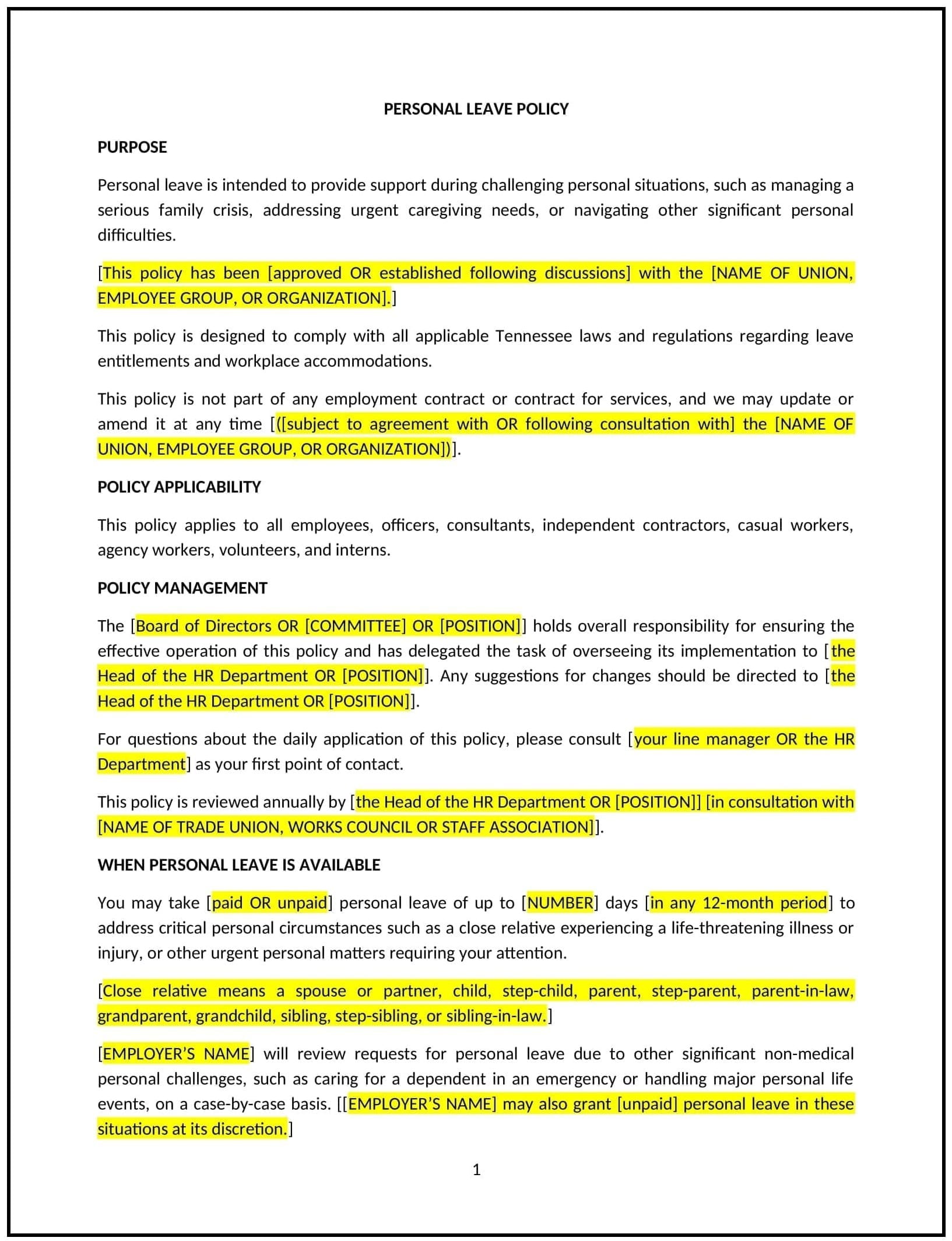Got contracts to review? While you're here for policies, let Cobrief make contract review effortless—start your free review now.

Customize this template for free
Personal leave policy (Tennessee)
This personal leave policy is designed to help Tennessee businesses establish guidelines for employees requesting time off for personal reasons, such as family emergencies, personal development, or other non-medical needs. It outlines procedures for requesting leave, job protection, and maintaining benefits during leave.
By adopting this policy, businesses can support employees’ personal needs, enhance work-life balance, and foster a compassionate workplace culture.
How to use this personal leave policy (Tennessee)
- Define personal leave: Clarify what constitutes personal leave, such as time off for family emergencies or personal development.
- Set leave duration: Specify the maximum amount of leave provided, such as 5 days per year.
- Establish request procedures: Provide steps for employees to request personal leave, including required notice and documentation.
- Address paid vs. unpaid leave: Explain whether personal leave is paid or unpaid, depending on the business’s policies.
- Ensure job protection: Guarantee that employees will return to the same or an equivalent position after leave.
- Train managers: Educate supervisors on handling personal leave requests and maintaining workflow.
- Review and update: Assess the policy annually to ensure it aligns with evolving business needs and employee expectations.
Benefits of using this personal leave policy (Tennessee)
This policy offers several advantages for Tennessee businesses:
- Supports work-life balance: Helps employees manage personal responsibilities and maintain well-being.
- Enhances employee satisfaction: Demonstrates a commitment to accommodating employees’ personal needs.
- Reduces turnover: Builds loyalty by providing support during personal emergencies or development opportunities.
- Promotes a positive culture: Fosters a workplace environment of compassion and understanding.
- Aligns with best practices: Encourages a structured approach to managing personal leave.
Tips for using this personal leave policy (Tennessee)
- Communicate the policy: Share the policy with employees and include it in the employee handbook.
- Provide training: Educate managers on handling personal leave requests and maintaining workflow.
- Monitor compliance: Regularly review personal leave requests to ensure adherence to the policy.
- Address issues promptly: Take corrective action if personal leave requests are mishandled or denied improperly.
- Update regularly: Assess the policy annually to ensure it aligns with evolving business needs.